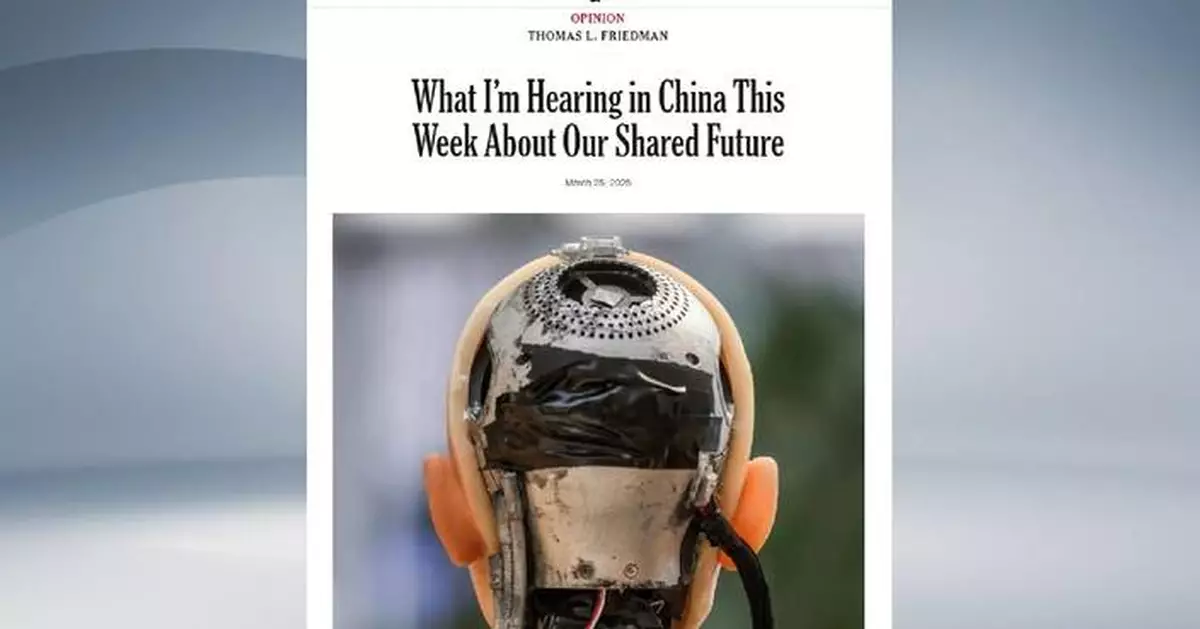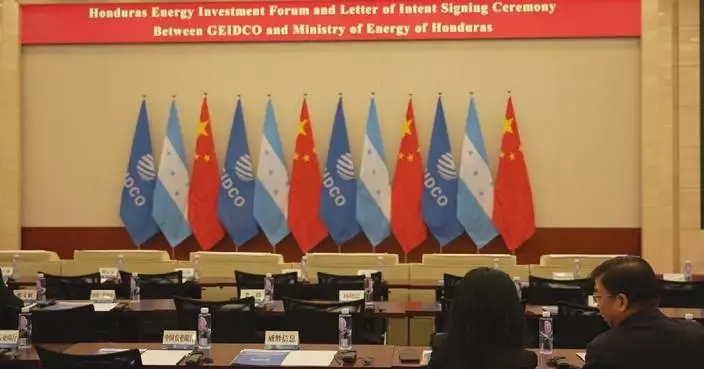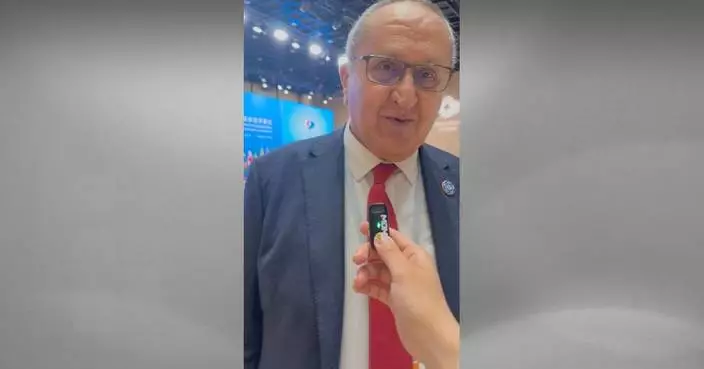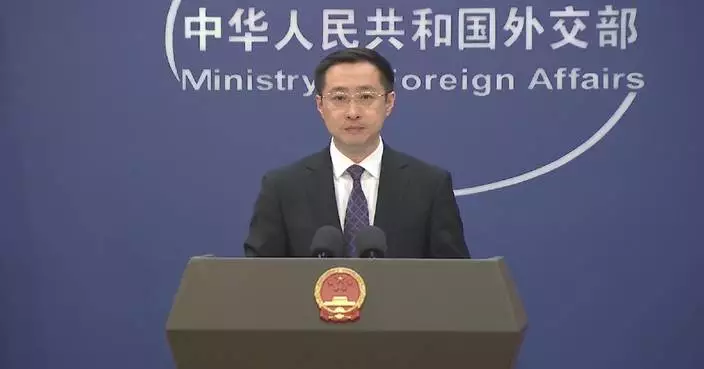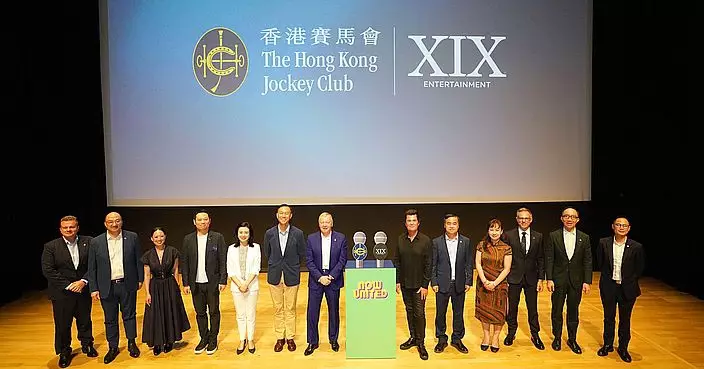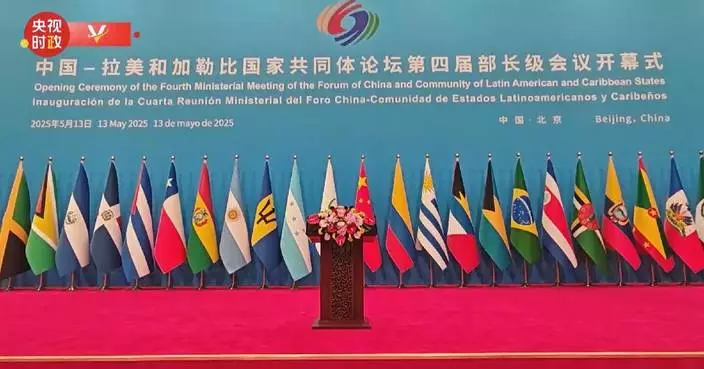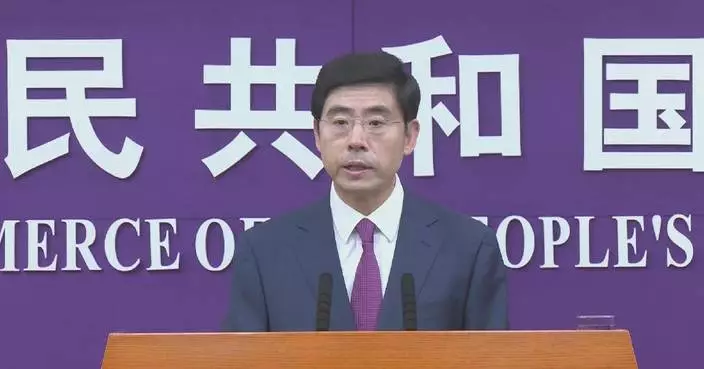It's impossible to build a system of governance that ensures artificial intelligence (AI) systems always operate and police themselves in alignment with both human and machine well-being without the participation of China, American columnist Thomas L. Friedman said in an article on Tuesday.
Friedman, a three-time Pulitzer Prize winner and the author of "The World Is Flat: A Brief History of the Twenty-First Century," attended the China Development Forum 2025 held on March 23 and 24 in Beijing.
Based on what he saw and heard during the event, Friedman published an article in the New York Times titled "What I'm Hearing in China This Week About Our Shared Future" on Tuesday.
"There is an earthshaking event coming — the birth of artificial general intelligence (AGI). The United States and China are the two superpowers closing in on AGI — systems that will be as smart or smarter than the smartest human and able to learn and act on their own," the article reads.
Friedman cited an M.I.T. Technology Review report on the "16 humanoid robots" that danced on stage during China's televised Spring Festival gala this year which read: "Clad in vibrant floral print jackets, they took part in a signature ... dance, twirling red handkerchiefs in unison with human dancers."
Friedman wrote in his column that "In their day job, these robots work assembling electric vehicles. Dancing was just their hobby."
"The advances that China has made on AI in just the past year have made it absolutely clear that Beijing and Washington are now the world's two AI superpowers," Friedman wrote.
He mentioned a recent report by Morgan Stanley describing China's dominance over the West in the humanoid robot industry, saying the country is home to a majority of the top-listed companies in this sector.
Noting AI systems and humanoid robots offer so much potential benefit to humanity, Friedman warned they could also be hugely destructive and destabilizing if not embedded with the right values and controls.
He repeatedly stressed the importance of collaboration between the U.S. and China in AI.
"Because what Soviet-American nuclear arms control was to world stability since the 1970s, U.S.-Chinese AI collaboration to make sure we effectively control these rapidly advancing AI systems will be for the stability of tomorrow's world," Friedman wrote.
"China has greatly narrowed the gap with us and surpassed the other democracies. This can't be done without Beijing. So guess who's coming to dinner. It's a table for two now," he said.
Friedman wrote in the article that "Once AGI arrives, if we are not assured that these systems will be embedded with common trust standards, the United States and China will not be able to do anything together."
He pointed out that in this case, neither side will trust anything they trade with the other, because AI will be in everything that is digital and connected, including cars, watches, toasters, chairs, implants, and notepads.
"So if there is no trust between the U.S. and China and each of the two countries has their own AI systems, it will be the TikTok problem on steroids. A lot of trade will just grind to a halt, with only soybeans for soy sauce sold to each other," Friedman wrote, saying "It will be a world of high-tech feudalism."
Friedman said he was taken with a speech by Israeli historian Yuval Noah Harari during the conference, who said that "We should build more trust between humans before we develop truly superintelligent AI agents. But we are now doing exactly the opposite. All over the world, trust between humans is collapsing. Too many countries think that to be strong is to trust no one and be completely separated from others. If we forget our shared human legacies and lose trust with everyone outside us, that will leave us easy prey for an out-of-control AI."
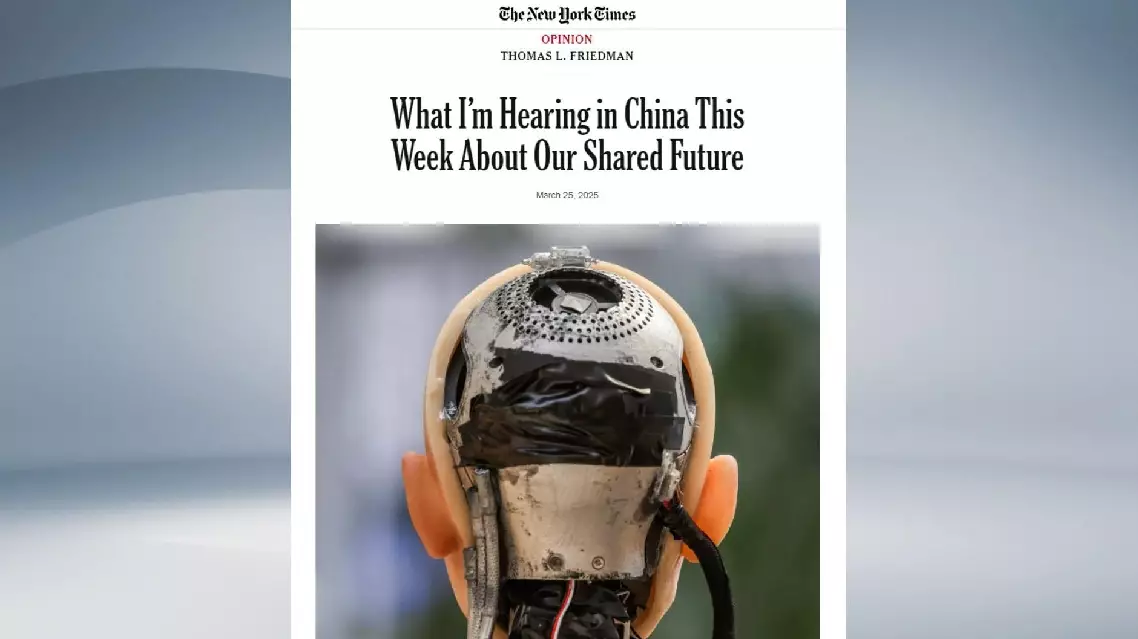
Global AI governance cannot happen without China: American columnist
A youth-led and youth-oriented business model centered on consumption and innovation by and for young people has injected new vitality into the economic development of Shanghai.
In March, the Shanghai Municipal Committee of the Communist Youth League of China issued an implementation plan on promoting youth economy, proposing to provide the younger generation with more diverse and rich consumption options by creating youth-friendly blocks, building 24-hour service places, and incubating unique small stores, markets and stalls.
In recent years, Shanghai has seen a growing trend of young people flocking to night schools, as the stressed-out urban employees look for a place where they can acquire new skills, while rejuvenating themselves and expanding their social circles outside the workplace.
At Hong Shou Fang, an important commercial center renovated from old neighborhoods in Shanghai's Putuo District, the night school for young people have enriched the streets with a vibrant new addition.
Bakery owner Zhu Jiayin told China Central Television (CCTV) that the white-collar workers attending the evening classes have driven the orders of the shop to increase by 50 percent in the past few months.
"The revenue chart show that we used to have little business between 18:00 to 19:00 because it was dinner time and there were few people coming to the bakery. Now, the sales volume has increased significantly. The night school is quite helpful for us," he said.
The young businessman said he plans to adjust the variety of food, adding light dinners and set meals to meet the demands of the young consumers.
While boosting the nigh-time consumption in nearby restaurants, stores and entertainment place, the night schools in office buildings have also improved the utilization of commercial real estate in idle hours.
"The night schools have become a part of young people's consumption. It can not only help the youth refresh themselves, but also drive the development of night-time economy," said Wang Ying, head of the Hong Shou Fang project.
At present, the emerging business mode with night schools as the pivot has covered four commercial youth centers in Putuo District, and is expected to be promoted throughout the city. A "three-in-one" development pattern of "youth night school plus youth center plus youth consumption" is taking shape.
Shanghai has also been vigorously fostering consumption scenarios featuring innovative and distinctive stores to attract young people. Given that the start-ups generally face major problems such low brand recognition, difficulty in obtaining resources, and high innovation costs, the local government has stepped up its support for young entrepreneurs.
Changning District has the highest proportion of young people in the residential group in the city. It is committed to becoming an area of hope for the young generation with a vibrant new consumption landscape.
At Yuyuan Road, a representative historical and cultural block, photography workshop runner Dong Jiahong has embraced a new lease of life for his business.
Dong's store has creatively launched pupil photography, capturing the unique color and texture in the iris with a macro lens. However, due to the relatively niche consumer base, the returns were not satisfactory.
The turning point emerged in March, when the store was selected to be presented at Changning's first youth economy market. Local authorities specially arranged mentors to provide guidance from store design to marketing promotion, and gave the store more exposure.
"The market didn't charge booth fees. The official WeChat account of the government helped further promote us online, giving publicity to such things as the features and locations of our store. I think this is very good," Dong said.
The government of Changning District has set up a special service group for the youth economy practitioners, tailoring online and offline display platforms for over 70 small stores to help young entrepreneurs attract customers and expand market channels.
In March, the district announced a targeted policy of providing full-cycle support for young entrepreneurs in terms of financial assistance, space matchmaking, and traffic promotion.
"With the resources of our platform, we integrate all the youth economy owners to promote the conversion of customer traffic into sales, and facilitate more cooperation in business operations," said Li Lei, chairman of the Youth Innovative Talent Development Center of Changning.

Youth-oriented business model invigorates Shanghai's economy



